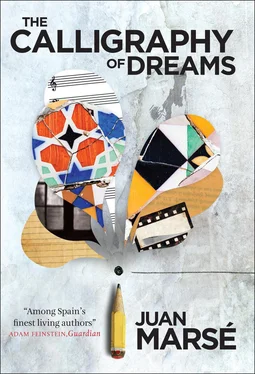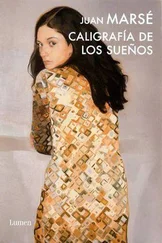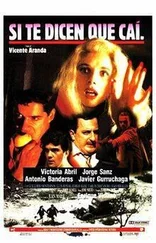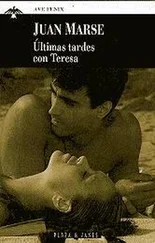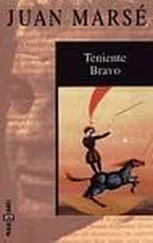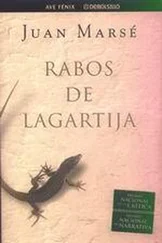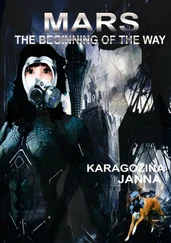Laughter mixed with coughing from the two cranky old pensioners. Although he realised they were making fun of him yet again, he still chose a reply based on logic. He always wanted to keep on their good side.
“From the mountains to the sea, Capitán, because the street runs downhill.”
“This part of the street is where you’re most likely to see optical illusions,” Capitán Blay had said on one occasion, studying the old lengths of rail. Perhaps that’s what the kid on the bike is experiencing now, thinks Ringo: he just has to set off down the street to gain his balance and win his bet. This is a very common experience, something lots of children his age have been through — if of course by luck or thanks to their parents they own a bike, which was not his case — and something that on this occasion, although he doesn’t know why, seems to him significant. Recently, lots of things have begun to seem significant to him, but today it takes him some time to discover that the tiny, furious cyclist is not intent on destroying his bicycle but only the part that is denying him victory and preventing him from enjoying the wind in his face, frustrating the great adventure of learning how to balance on his own without help or advice from anybody else. Sitting on the edge of the pavement near the drain, the boy is angrily shaking the struts holding on the supporting wheels, trying to loosen the screws. He has a determined expression on his face: he is going to get rid of the stupid little wheels if he has to tear them off with his teeth. But after quite some time he has got almost nowhere. When he sees somebody he knows going past, a house-painter with a ladder over his shoulder, he asks him for help. Please, have you got a hammer? The man is in a hurry, and smiles without stopping, although he ruffles his hair affectionately and continues on his way. Over the next half hour, the boy asks several passers-by for help, whether he knows them or not. Some of them don’t even look at him; others do not stop, merely listen with a smile and give different excuses. A spanner? I’m sorry, I’ve run out of them. And another: Why don’t you go home and tell your mother what you’re trying to do, my little man? The boy stands up, slips his little penis out of the side of his shorts and pees against the wall where the tornado appears to be whirling towards him. The last person to stop when he hears his appeal is a locksmith from Calle Martí. He explains that these little stabilisers that he wants to get rid of are there to help him balance and to prevent him coming a cropper. The boy also hates the bike’s fixed wheel, and asks him if it’s possible to change it, but the man doesn’t respond. I don’t want to ride with a fixed wheel! he complains when he is on his own again. Every so often he gets up to kick and thump the bike, and then sits down again.
Ringo stops looking at him for a moment when he realises his numbed fingers are still holding the pencil. He lets go of it finally and examines what he has written. He notes down a correction, but he doesn’t like it, so he rejects it, then passes the time doodling a winged gruppetto on an imaginary stave. When he raises his head again, Tito is shaking the stabilisers even more furiously and stubbornly, now on the verge of tears. His insistence, the interminable argument between boy and bike as to who should be in control of the balancing and can claim victory, holds Ringo’s attention for some considerable time. Finally, Tito manages to unscrew the metal supports. He throws them and the stabiliser wheels into the open drain. Then he stands the bike at the edge of the pavement and climbs on. With one foot on the pedal and the other on the ground, he shoots a triumphant glance over his shoulder in the direction of the tavern window before he launches himself down the street, well aware he is being watched.
He is bound to crash many times before he succeeds, and will return home with scraped knees and a few bruises. Ringo looks away from the street and drops the blind. He raises it again quickly when he hears the sound of crashing metal. No, he hasn’t been hit by a car, and nobody seems to have seen him — apart from Ringo. The boy gets to his feet in the gutter, casts a defiant glance towards the bar, licks a scrape on his hand, shakes the dust off his shorts, and wheels his bike back up the hill. As he goes past the tavern, he gives another sideways, challenging glance in the direction of the only witness to his feat. And this time the witness has understood. Dropping the pencil on to the scrawled-on sheet of paper, he watches with an intense, unwavering attention, surprisingly focused on capturing the details, as the little boy launches himself at full tilt down the street, determined and fast despite the lurches and crashes, his chin to the handle-bar, eyes fixed ahead of him with a manic intensity, a powerful tension created in equal measure by optimism and frustration plain on his face, until he falls yet again in a tangle of wheels, arms, and legs, only to spring up at once, knees scraped bare and blood on his cheeks, walk back up the street, sit on the saddle and set off again from the pavement edge, pushing off with one foot and a determination that negates all fear of crashing. From the bar, with his maimed hand raised in the air, and feeling the lack of the pencil between his fingers, Ringo cannot help but observe this persistent, desperate pedalling that ends time and again in a fall, the repeated mental pressure on the pedals, the enraged lowered head charging at the air and everything else in its way. Some passers-by advise him to stop, but the kid won’t listen to anybody, there is no way he is going to get off his bike. He is in a race against time, because he knows someone is bound to tell his mother. His worst crash comes when he hits the disused tram tracks: without meaning to, he gets one of the wheels stuck in a rail, the bicycle stops and Tito is flung over the handlebars. He gets up again and rides on, and a short while later, when he has lost count of the falls — the last few increasingly controlled — all of a sudden he steadies himself and begins to ride round in circles, a broad grin on his face as he glances back at Ringo. Still looking at him and smiling, Tito turns the corner into Calle Martí and disappears in the direction of Plaza del Norte with a victory whoop.
All this time, ideas for his writing have been germinating, and something leads Ringo to tear out the page he has been scribbling on and use a clean one. He picks up the pencil with his painful fingers and listens to the music of the words as they come back to him. It’s not a banal tune like the ones he often hums, unconsciously falling back on the imaginary four-four rhythm he has learnt from the music scores; from the start, from his first timid attempt, it was like a well-known melody he had heard a thousand times but never completed, a mutilated succession of notes that his auditive memory had stored away and was now converting into words; a musical phrase with echoes that could not be traced back this time to the lines of any musical stave (there was no room for any mistake in this, the echoes were clear and consciously assumed) but to the heights of a mountain covered in perpetual snows. And so the bandaged hand which a short while before had been immobile now picks up the pencil and, with renewed energy despite occasional stabbing pains in his sacrificed finger, he corrects and concludes what will turn out to be (although as yet he does not know it) a seminal paragraph.
The Montaña Pelada is a bare, arid hill some two hundred and sixty-six metres high, and the origin of its name is confused. On its eastern flank fossils of prehistoric tortoises and mammoth bones have been found. Near the summit stands a large, flat rock with three steps of a staircase that was never finished. No-one has ever been able to explain where a staircase was intended to lead in such a barren, desolate place.
Читать дальше
